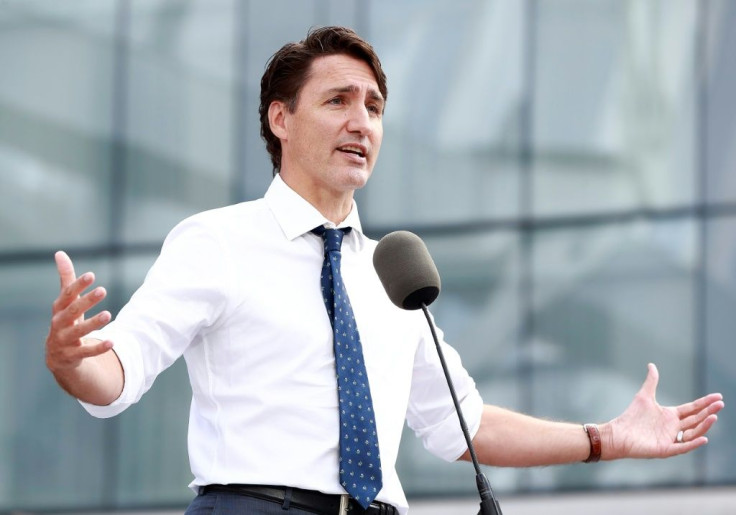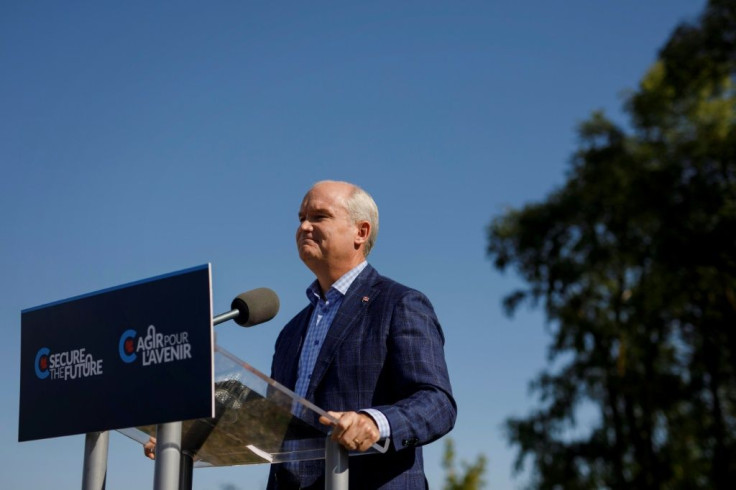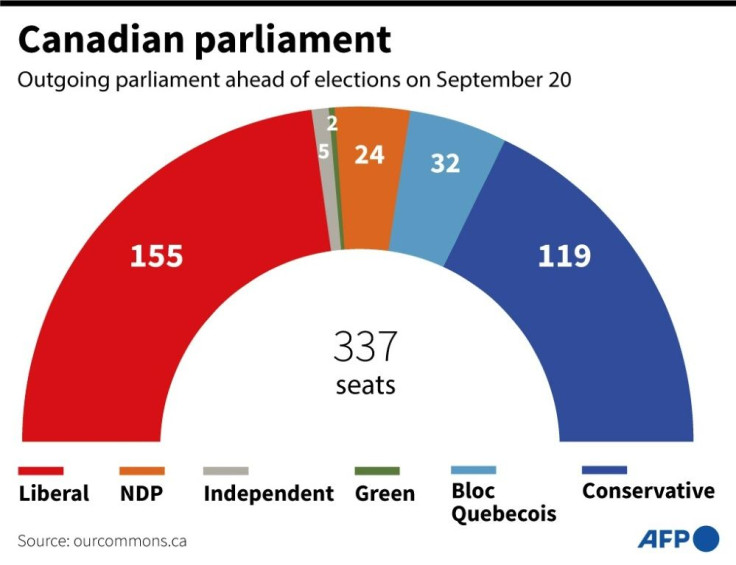Trudeau, O'Toole Blitz Key Battlegrounds Ahead Of Canada's Monday Election
Canada's Liberal prime minister Justin Trudeau and his main rival, rookie Conservative leader Erin O'Toole, made their final pitches to voters in key battlegrounds Sunday on the eve of snap elections as the two remain virtually tied in public opinion polls.
Trudeau blitzed through electoral districts in the provinces of Ontario, Manitoba and British Columbia, while O'Toole focused on the vote-rich metropolis of Toronto and surrounding communities.
"How are we going to put an end to this pandemic? What values are we going to bring to government? What direction are we going to give for our families, our businesses and our future? That is why we're in this election," Trudeau said at his first campaign stop of the day, his voice hoarse after 35 days on the trail.

The 49-year-old has struggled to electrify his campaign for a third term, after calling the snap election last month in a bid to regain the majority the Liberals lost in the last ballot only 18 months earlier.
O'Toole, meanwhile, broke out onto Canada's political scene in the last five weeks after remaining a relative unknown to Canadians since becoming Conservative leader one year ago in the midst of the pandemic.
Leaders of smaller factions, such as the leftist New Democratic Party's Jagmeet Singh, Yves-Fran?ois Blanchet of separatist Bloc Quebecois and the Green's Annamie Paul also campaigned in their respective electoral districts on this last day.

The outcome of Monday's vote is wholly unpredictable as the two main parties who've ruled Canada since its confederation in 1867 are neck and neck, with about 31 percent of poll respondents saying they intend to vote for each.
If neither wins an absolute majority of the 338 House of Commons seats up for grabs, it will be up to the party with a plurality of seats to form Canada's fifth minority government since 2004.

"The Liberals have a slight lead, so this election might have been all for nothing," said Daniel Beland, a politics professor at McGill University in Montreal.
Trudeau gambled that Canadians would reward his adept handling of the pandemic and smooth vaccine rollout by returning him to Ottawa with a strong majority that would allow him to pass his agenda without opposition support.
But the campaign did not go as planned for the prime minister, with opposition parties gaining more support than widely expected and a sudden fourth Covid outbreak led by the Delta variant in parts of the country threatening hard-fought gains against the virus.
"We'll certainly have an idea of the likely outcome Monday evening (after the polls close), but we might have to wait another day for the final result due to a larger-than-usual number of mail-in ballots," said Felix Mathieu, a University of Winnipeg politics professor.
Whatever the outcome, the election will almost certainly be deemed a failure for Trudeau, as it has weakened his political standing.
"He called an election thinking he could improve his lot and gain more seats in the House of Commons, but obviously that's not going to happen," University of Ottawa professor Genevieve Tellier told AFP.
She said the Liberal leader made "a strong sales pitch" to voters, but it will be hard for him to mend his tarnished image.
"A lot of people find that he talks a lot, but doesn't act enough," she said.
Gone are the days of Trudeau's 2015 landslide when he took his party from third place to number one.
© Copyright AFP 2024. All rights reserved.











